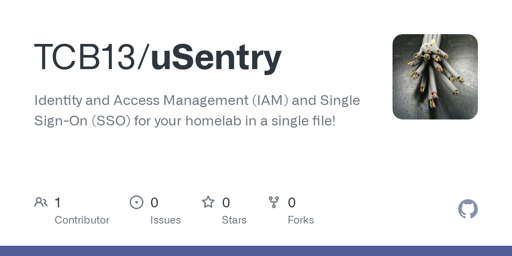uSentry is a lightweight, self-hosted Identity and Access Management (IAM) and Single Sign-On (SSO) solution designed for homelab and small-scale environments.
⚡ A single PHP file. < 400 lines of code. No database. No background processes. No cloud. Just works. ⚡
Most IAM and SSO solutions require databases, certificates and background services baked into a dozen containers. This is all fine but also also overkill for homelabs and impossible for low-power ARM devices. uSentry is different, it isn’t pretty but it sucks less for a lot of use cases.
Enjoy!
Fun little project but I think
auth_basicwould be perfectly fine instead.Hmm… some people are going to say that basic auth would be insecure, I’m not going to be there because in this particular case it’s about the same thing.
However, this might be easier to configure and manage permissions than basic auth. Also this works cross-domain and basic auth will require full re-auth for every domain. Another obvious advantage is that at some point I plan to integrate 2FA.
I have been constantly asking myself why there isn’t something like this, and just wondering if maybe I was missing something about the seeming immense complexity of doing this on a small scale.
Now there is something like this.
I don’t love PHP, but I also don’t love having dozens of separate passwords, keys, certificates and other nonsense to keep track of like I’m doing now. I don’t mind using PHP to get around that if I can.
Well, it isn’t pretty, but gets the job done.
The thing with PHP in this case is that I was already serving a ton of simple websites / small apps like freshrss that use PHP and by making this tool in PHP it means I don’t need yet another process running and wasting resources, can just re-use the existing php-fpm for this.
For what’s worth PHP is better than it looks, and my implementation is very crude, but also small and auditable and contained to a single file. :)




